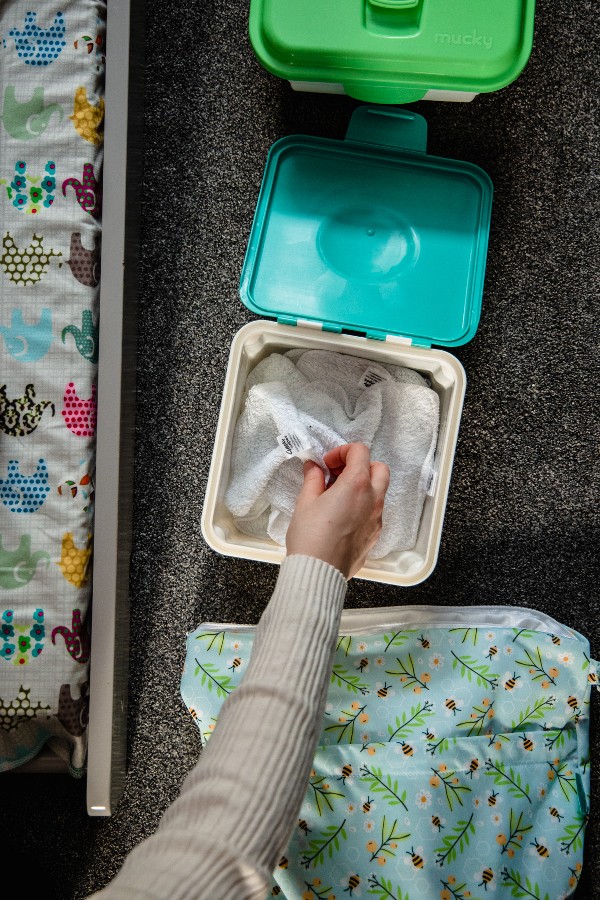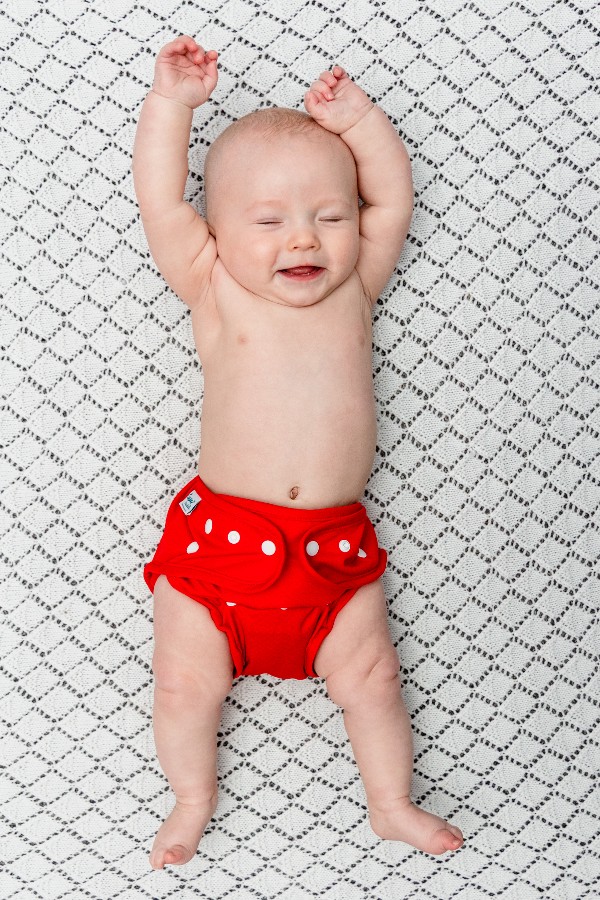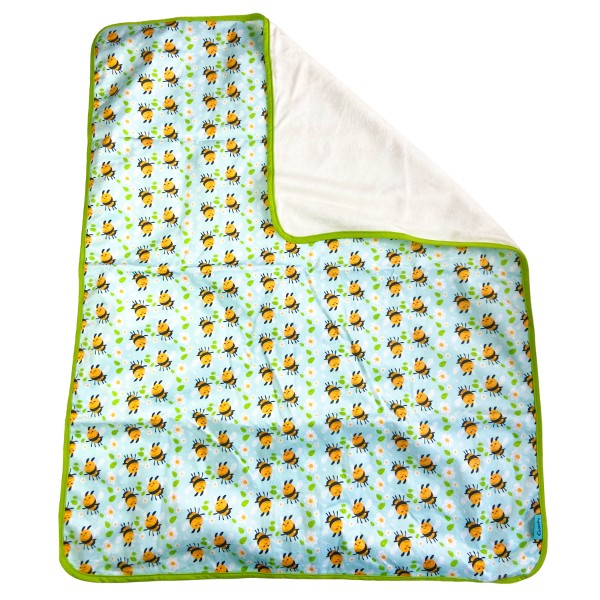Can I have a baby on a budget?
Yes! Even with the cost of living crisis, it is possible to have a baby on a budget.
It seems like every day at the moment we're seeing headlines about the soaring cost of living. Between energy prices and food shopping increases, it's difficult to see where it can end.
Here's our top tips for saving money when having a baby, saving your pennies and the planet:
- Save up to £250 annually by choosing Reusable Wipes instead of disposable wipes
- Choose reusable nappies instead of disposable nappies
- How many nappies on average does a baby use over their lifetime?
- Only buy baby essentials, ask for 'nice to haves' as gifts
- Borrow Baby Equipment from friends & family
- Buy preloved baby clothes & equipment to save money
Finding out that you're pregnant at the moment, whilst joyous, can also be tremendously worrying. The prospect of a drop in salary during your maternity leave could make it difficult to make ends meet, especially if you're only receiving statutory maternity leave pay.
At Cheeky HQ, we've been there and done that and can hopefully allay your fears about how to save money when expecting a baby, while also being eco-friendly too.
How much is statutory maternity pay in the UK?
Statutory Maternity Pay in the UK is paid at 90% of your average weekly earnings (before tax) for 6 weeks. For the next 33 weeks you'll receive the lower of £156.66 (Correct March 2023) or 90% of your average weekly earnings, making 39 weeks in total.
This is a significant drop in earnings, so it makes sense to try and prepare everything you need for your baby BEFORE they arrive, to avoid eating into your maternity pay.
Some people think it's bad luck to buy in advance but by waiting until you reach the 36 week mark you should have passed the danger zone but still have enough time to prepare for your baby.
If you aren't superstitious, keep an eye on second hand pages and buy baby stuff early.
1 Save up to £250 annually by choosing Reusable Wipes instead of disposable wipes
Choosing reusable wipes is one way to really save a LOT of money. Hundreds of pounds in fact over just a few years. The Cheeky Wipes all-in-one kit is priced at just £48.75 and contains everything you need to make switching to reusable wipes easy. 25 Cloth wipes, with soaking containers for home use, essential oil soaking solutions, mesh laundry bag and out and about wet bags too.
Go back a year or so and the 'standard' pack of disposable wipes contained 72 wipes. If you take a look now at any packet of disposable wipes, you'll see that most manufacturers are offering packs of just 56 wipes. This 'shrinkflation' is a really sneaky way of increasing costs for consumers, without putting the price per packet up.
Whereas previously, people would use 150 wipes a week (two packs) of disposable wipes per week, they'll now need to buy almost three packs to get the same amount of wipes. That can really add up.
Even supermarket own brands are around £1 per pack of wipes, so three packs per week adds up to a whopping £156 annually, which could DOUBLE if you're using premium brands. You'll use wipes for cleaning bums and hands and faces for at least 3 years, so that adds up to a hefty £500 plus price tag.
Reusable wipes are an easy way to save money. They can be washed in the washing machine at 40c and don't require separate washing from the rest of your wash. They don't need to be tumble dried either, drying brilliantly on a sock hanger, on your washing line or even in piles on your radiator.
They're less likely to give your baby nappy rash as they can be used with plain water too!
2 Consider using reusable nappies - save £££
Many new parents wonder whether it's cheaper to use disposable nappies or reusable nappies. However if you consider how many nappies you need a month, the period that you'll use them over and whether you're likely to have another baby, choosing reusable nappies upfront can save you a LOT of money, even with the cost of washing considered.
How many nappies on average does a baby use over their lifetime?
Experts agree that babies use 4500 nappies on average over the course of their lifetime, around 2200 - 2500 in the first year of their life, as runny newborn baby poo means up to 8 nappies a day need changing! Even using supermarket budget nappies, that's around £400.
Buying in bulk for disposable nappies can definitely save money, however so if you have somewhere to store them, buying a months supply at a time can mean you could buy premium brands for the same amount.
The worse news is that your baby will usually be in nappies for at least 2 years and some babies don't potty train until they're 3, so that is likely to be over £1000 in nappies!
On that basis, it's really worth considering cloth nappies as a money saving alternative which could save you hundreds of pounds. Our Cheeky Doodoo 2 part bamboo nappy bundle contains 10 nappies, three wraps, liners, boosters and nappy pail for just £160. Even if you can't commit to cloth nappying full time, using reusable nappies part time will really save you money.
Even better, if you're uncertain about switching to cloth nappies, our nappies come with a money back guarantee - LOVE them or your money back!
There's definitely additional costs involved in washing your nappies. According to 'Which' magazine, in August 2021, 4 washes per week in the average washing machine would amount to £38. As prices have increased since then, we estimate that cost would increase to around £58, and of course, you're likely to have additional washing as a result of washing nappies.
It's important to note that nappies don't have to be washed at high temperatures and in fact more manufacturers recommend washing at 40c to preserve the life of your nappies. Even with these additional costs however, you're still quids in by switching to reusables.
3 How much do baby essentials cost?
Baby essentials cost up to £7200 according to the NCT Baby Cost calculator, so it's possible to save thousands by buying carefully:
Essentials:
- Car seat - £250
- Bedding, Blankets, sleeping bags - £200
- Pram / pushchair / Travel system - £1000
- Sterilising Equipment for bottle feeding or dummies - £40
- Bottles, teats etc - £25
- Clothing - £300
- Nappies - £25 monthly
- Wipes - £20 monthly
Nice to have (non essentials which make great gifts)
- Baby room thermometer - £50 - If the temperature feels OK to you, chances are your baby will be fine too
- Changing Table - £250 - swap for a washable changing mat on the floor which also takes up less space
- Baby Monitor - £20 - if you live in a small house, this may be unnecessary
- Mobile - £200 - Can help some babies sleep, but isn't essential
- Nightlight - £100 - again, falls into the 'can help some babies sleep but isn't essential' category
- Travel Cot - £150 - useful only if you'll be travelling away with your baby and you don't co-sleep
- Baby Sling or Carrier - £150 - some parents could find this more useful than a pram, however look out for local 'sling libraries' which will hire slings at much lower costs
- Changing Bag - £200 - any spacious handbag will do
- Playmat or activity gym - £60 - nice to have for exercising your baby but not essential
- Baby bouncer or rocker - £50 - nice to have for exercising your baby but not essential
- Rattles, teethers or other toys - £60 - You can make home made rattles using bottles with rice or grains. Frozen reusable baby wipes make fantastic teethers for cooling painful gums
- Breast Pump - £200 - handy to have if you're exclusively breastfeeding as it will allow your partner to feed your baby if you aren't around, but these can also be hired
- Maternity Bras and breast pads - £50 - reusable breast pads can save money and any non-wired bra can be used as a breastfeeding bra
- Muslins - £30 - use old towels or teatowels instead
- Nursing Pillow - £40 - use old towels or cushions instead
- Dummies - £10 - not all babies use dummies, it's a personal choice and very dependent on whether you have a 'sucky' baby who likes to suck to self-soothe and whether they can find their thumb or fingers instead
- Highchair - £250 - we think this should definitely come on the 'essentials' list, however it doesn't have to be a standalone high-chair, a clip-on high-chair could suffice
- Weaning equipment - £50 - when you come to wean your baby to solid food, extra bibs, bowls and feeding equipment are usually handy
- Baby Towel - £30 - although your baby will look very cute in a specific baby towel with ears, any standard towel will suffice
- Bath thermometer - £40 - no need for this as you can easily test the water temp using your elbow
- Grooming essentials - £15 - baby brush, nail clippers, comb - again, your baby can use your existing brush and nail clippers
You'll save a LOT by purchasing the essential items only, adding any non-essentials that you really would like to your gift or baby shower list.
If you're looking to make your maternity pay go as far as possible, it's a great idea to make a baby gift list to avoid ending up with lots of cute but impractical newborn clothes. Babygro's across a range of sizes are brilliant for your baby until they start walking as they're comfy for baby and easy to wash too.
If you don't know your baby's gender, just ask for gender neutral colours, grey, yellow, green, orange, purple which have the added advantage of meaning that you can pass them on to any siblings which may arrive at a later date.
4 Borrow baby equipment from friends & family, save £££
Even better than buying new, ask around family and friends to see if you can borrow any baby equipment. Many parents store the bigger items 'just in case' and are happy to see it being used again, loved and enjoyed.
One point to note is that car seats should only be use second hand if you know for SURE that the car seat hasn't been in an accident.
5 Buy preloved baby clothes & equipment to save money
Again, many parents find themselves with lots of baby equipment which is no longer needed once their child has finished with it. Often you'll find parents selling 'bundles' of baby clothing for just a few pounds on various second hand marketplaces.
The Octopus Club is a great place to start. Calling itself 'the preloved marketplace for kind parents' it was a firm favourite of our marketing manager Becky when she had her girls. Joining the club also gives you access to a range of discounts at popular sustainable baby brands (including Cheeky wipes!)
Not only is this better for the environment by reusing existing goods, but it can also save you an absolute fortune too. It's a brilliant way to save money and be a tiny bit smugly eco-friendly too!
We hope you liked this post, please do leave us a comment below if you've got any questions. If you enjoyed this article, you may also enjoy:
- How bad are wet wipes for the environment
- the pros and cons of reusable wipes and disposable wipes
- How do reusable wipes work
About the author: Helen Rankin is founder of Cheeky Wipes, the original environmentally sustainable reusable baby wipes kit, founded in 2008. The Cheeky Team pride themselves on helping people make the switch to reusables EASY, with a range of eco friendly products including period pants and cloth sanitary pads. Cheeky Wipes were awarded the Queens Award for Enterprise for their sustainable development goals in 2021.


